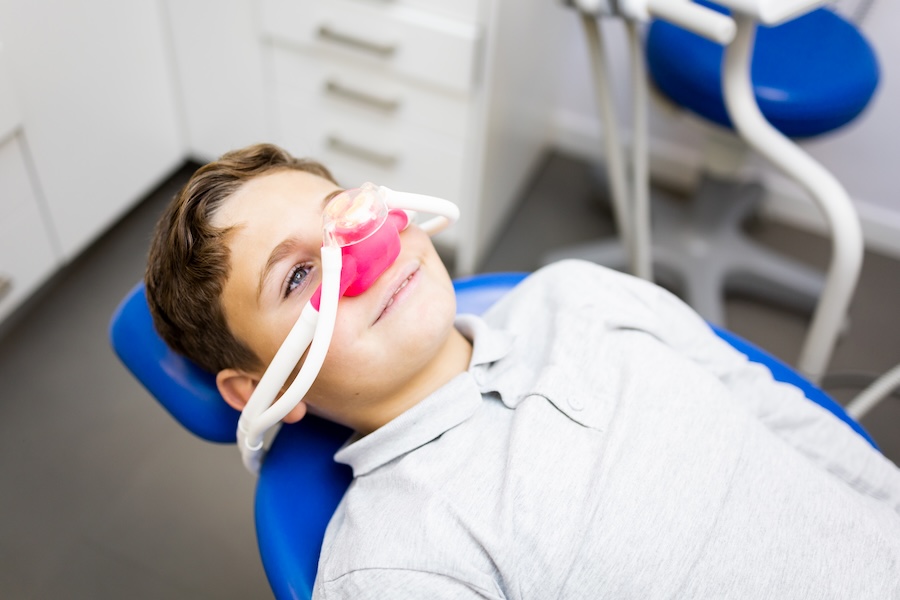
Dental Sedation Options for Patients With Autism or Sensory Processing Disorder
August 20, 2025 9:00 amWalking into a dental office can be a challenge for anyone. For individuals with autism or sensory processing disorders, it can feel more like stepping onto a launchpad—loud sounds, bright lights, unfamiliar faces, and uncertain sensations all coming at once. At Dallas Center for Oral Health & Wellness, Dr. Anna Willison, Dr. Eugene Dahl, and Dr. Azita Carr understand that sensory sensitivity isn’t just a preference; it’s part of how someone experiences the world. This is where dental sedation becomes more than a comfort—it’s a doorway to access.
Why Sedation Can Make All the Difference
Dental sedation doesn’t mean putting someone to sleep in the dramatic way movies might show. It’s about helping patients stay calm, safe, and relaxed. For people with sensory processing challenges or autism, even routine cleanings can cause discomfort. That’s not just physical, but emotional and mental as well. Sedation helps bridge that gap.
By reducing anxiety, minimizing involuntary movements, and dulling overwhelming sensory input, sedation gives the dental team a clear path to deliver effective, gentle care—without triggering stress or trauma.
Nitrous Oxide: Gentle and Quick
Often called laughing gas, nitrous oxide is one of the lightest forms of dental sedation. It’s ideal for patients with mild anxiety or those who just need a little help getting through an appointment. It’s inhaled through a soft nasal mask and wears off quickly—usually before you leave the chair.
There’s no heavy drowsiness. Patients remain awake, responsive, and in control but feel calmer. For some, it’s just enough to take the edge off. Plus, since it clears out of the system fast, there’s no recovery period needed.
Oral Sedation: A Deeper Level of Calm
For more involved procedures or patients with greater sensory or emotional sensitivity, oral sedation can be the better choice. This involves taking a prescribed pill before the appointment. The patient feels drowsy, calm, and possibly a bit disconnected from the usual sensory chaos.
This method is often paired with nitrous oxide to enhance comfort. Because the sedative affects alertness and coordination, a driver is required. Still, it’s a game-changer for patients who otherwise might avoid dental visits entirely.
IV Sedation: Twilight Restfulness for Complex Needs
When a higher level of sedation is needed, IV sedation enters the picture. It’s administered and monitored by a board-certified anesthesiologist. The patient enters a twilight state—responsive if needed, but unlikely to remember the appointment at all.
This approach is especially effective for individuals with moderate to severe dental fear, intense sensory aversions, or who require multiple procedures. Because the experience feels more like restful sleep, there’s minimal memory of sounds, lights, or tools. Post-procedure, rest is needed, and a caregiver must be present.
Hospital General Anesthesia for Advanced Support
For patients with significant medical conditions, intellectual disabilities, or advanced sensory disorders, the most secure setting may be a hospital. At Medical City Hospital in Dallas, the Dallas Center for Oral Health & Wellness team provides general anesthesia dental care under controlled conditions.
In the operating room, patients are fully asleep while a trained anesthesiologist oversees their safety. This allows dental work to be completed in one visit without placing the patient through repeated, stressful appointments.
Understanding the Challenges at Home
Oral hygiene isn’t easy for many people with sensory processing issues. Brushing can be uncomfortable. Routines might be disrupted by texture sensitivities or motor skill challenges. As a result, dental issues like gum disease, tooth decay, and uneven bite patterns develop quickly.
This makes access to effective, stress-free dental care all the more urgent. Dental sedation provides a lifeline—not just for treating current problems, but for preventing future ones by making regular visits possible.
Options Tailored to the Individual
Not every sedation option fits every patient. The dentists at Dallas Center for Oral Health & Wellness consider medical history, the nature of sensory challenges, and the specific dental procedure before making a recommendation.
Parents or caregivers are involved every step of the way. Together, you’ll decide which path makes the most sense. Whether it’s a gentle calming gas or full general anesthesia, the focus stays on safety, comfort, and dignity.
Your Sedation Dentistry Team in Dallas, TX: Dallas Center for Oral Health & Wellness
If you or your loved one lives with autism or sensory sensitivities, don’t let fear or discomfort delay essential dental care. The experienced team at Dallas Center for Oral Health & Wellness—Dr. Anna Willison, Dr. Eugene Dahl, and Dr. Azita Carr—is here to help. Call today to schedule a consultation and explore your sedation options in a space that respects your needs and listens first.
Categorised in: Our Office, Sedation Dentistry, Special Needs Dentistry

